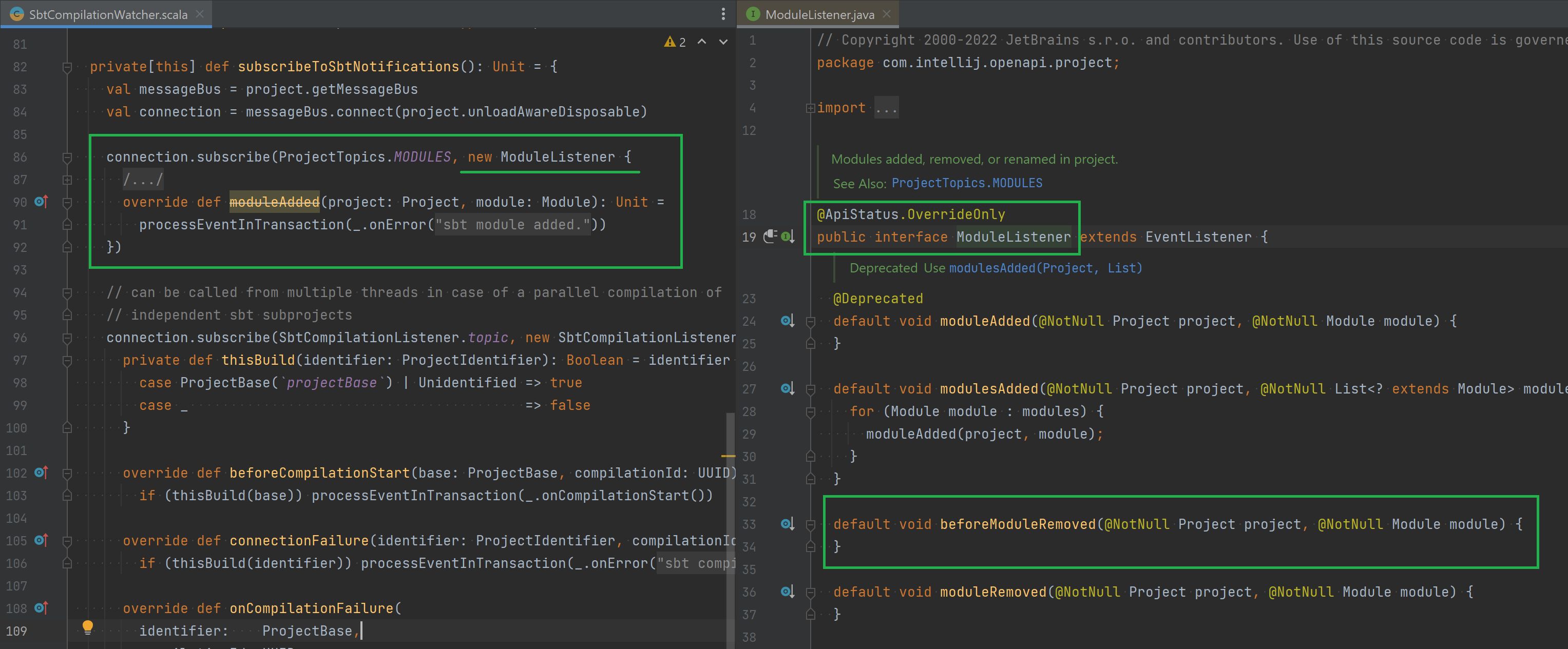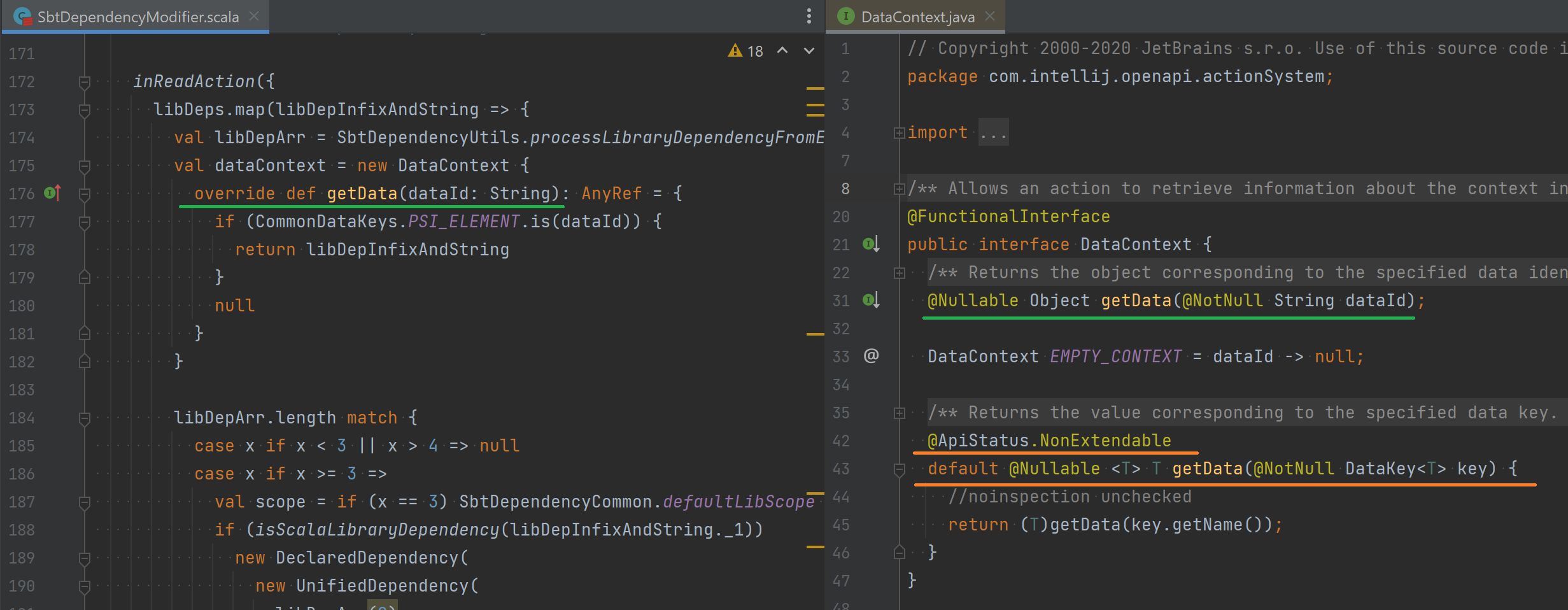There's a long history to why the forwarders exist, see https://github.com/scala/scala/pull/5429 for example.
Changing the flags and adding ACC_SYNTHETIC would not affect JVM semantics, but it's not without risks, it could break other tools such as javac.
Would it be an option to identify the forwarders based on their bytecode instructions? The body is ALOAD 0; INVOKESPECIAL ...; RETURN if the parent is a Java interface and ALOAD 0; INVOKESTATIC ..$ ...; RETURN if the parent is a Scala trait.
Scala compiler handles Java default methods differently from Java. Scala generates delegating methods that just invoke
super.foo()while Java does not.AFAIU this is done to support multiple inheritence in Scala. Though I don't know whether it's indeed required for java 8 interfaces with default methods, or it is a rudiment from old times.
Example:
Notice that
foo3is not overridden inMyScalaClass. If you look into bytecode you will see thatfoo3method was added by the compiler:Compare with java:
Feature
It would be great if there was a way to determine from the bytecode that method
foo3was automatically generated by the Scala compiler. Some meta information in any form would be helpful. It would be enough if this meta-data was added only with an extra compile flag, for a start.Experiments
I checked whether
foo3contain flagACC_SYNTHETICin the bytecode and it does not.foo2andfoo3have the same set of flagsBackground
We use Scala 2.13 to develop Scala Plugin for IntelliJ. In the IntelliJ platform, there are some automated tests that verify proper Platform API usage. For example, they check that some platform methods marked as
@ApiStatus.NonExtendableare not overridden by plugins. Or, methods that are marked@ApiStatus.OverrideOnlyare not called by plugins directly. Both of these checks fail with some Scala Plugin code because delegating methods do both: they override super method and call super method. If there were some markers that allowed us to detect auto-generated methods we could patch platform tests to ignore them.Example 1
Notice that

SbtCompilationWatcher$.anon$1.beforeModuleRemoved(...)is reported because under the hood it invokesbeforeModuleRemovedmethod. Even though in the source code we do not do this.Example 2
Notice that we don't override

com.intellij.openapi.actionSystem.DataContext#getData(com.intellij.openapi.actionSystem.DataKey<T>)explicitely, but still it's reported